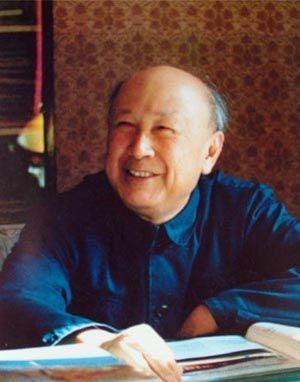Chinese know Qian Xuesen, the founder of China's aerospace science and technology, the pioneer of two bombs and one satellite. There are countless stories about him, but few people know the story of Qian Xuesen when he was in college in Shanghai.

He attended university at Shanghai Jiao Tong University. At that time, Shanghai Jiao Tong University was the best engineering school in China, but Qian Xuesen hardly listened to lectures. Every time he went to class, he sat in the last row of the classroom and studied scientific and technological works by himself.
Some people say that he is smart, so he can understand without listening to lectures, in fact, more critical is his reading ability. The ability to read independently allows him to easily grasp the knowledge of the textbook, read, think, and read again, in this process, his mastery of knowledge is even more profound than that of the teacher.
So why can he read selflessly in a classroom where everyone is laughing and playing?
The reason is that he enters a state of "flow" in reading.
Psychologically, "flow" refers to the state of full concentration and selfless devotion when we do certain things.
People who enter the "flow" state do not feel the presence of time, and afterwards they will get a very satisfying and energetic feeling.
Our brains love the feeling so much that they are eager to continue doing it and experience it again. When it comes to reading, it's hunger.
Qian Xuesen has a hungry "flow" feeling in reading. This feeling makes him enjoy it so much that he can keep reading.
In contrast, many of our children experience not enjoyment, but tolerance in reading.
So what can we do to make children enjoy the feeling of "flow" in reading? Previous We have learned to make children interested in reading, now let's share ways to read flow.
Adhering to the principle of consistency, the road is simple, and all complex methods are difficult to implement in the end. Regarding reading flow, Merley shares only 9 words: will recognize, discuss, and praise.
01
will be recognized
Will recognize, meaning that we observe the child's reading status. When the child is engaged in reading, ignores people, is quiet, or is very excited, it is entering a state of "flow". We pay attention to keeping the environment quiet and not letting him be disturbed.
02
will be discussed
Discussion means that when the child finishes reading, we will communicate and discuss with the child. The exchange discussion here is to listen carefully to the child's sharing, discuss with him about the topic, guide him to think more deeply, or divergent thinking.
For example, he read Qian Xuesen's story, and we can expand on how he broke through the barriers to return to China when he was under house arrest in the United States.
A special reminder is not to always ask the child whether he can understand it, and do not try to tell the child word by word, word by word, and knead it. In this way, children will lose the joy of experiencing and comprehending from reading.
03
Much praise
Not to hit means that no matter what the child experiences after reading it, it cannot hit him, but praise him more. Even if he complains after reading it that the book is too boring, what we have to do is not to correct how he should read the book, but to guide him into the discussion session.
The process of discussion is the process of refining and thinking. Some books are not good in themselves, and the child expresses his opinion, and we praise him for his discernment. Perhaps, just to distinguish whether the book is good or not, he may be interested in reading it.
Because our praise can make him feel happy and make him feel that this thing is worth doing.
Well, [Cultivate children's strong reading ability] The second sharing ends here, the next article we will share how to make children willing to take the book to see?
If you want to read the first article in this series, you can click to develop your child's strong reading ability, starting with understanding brain science!